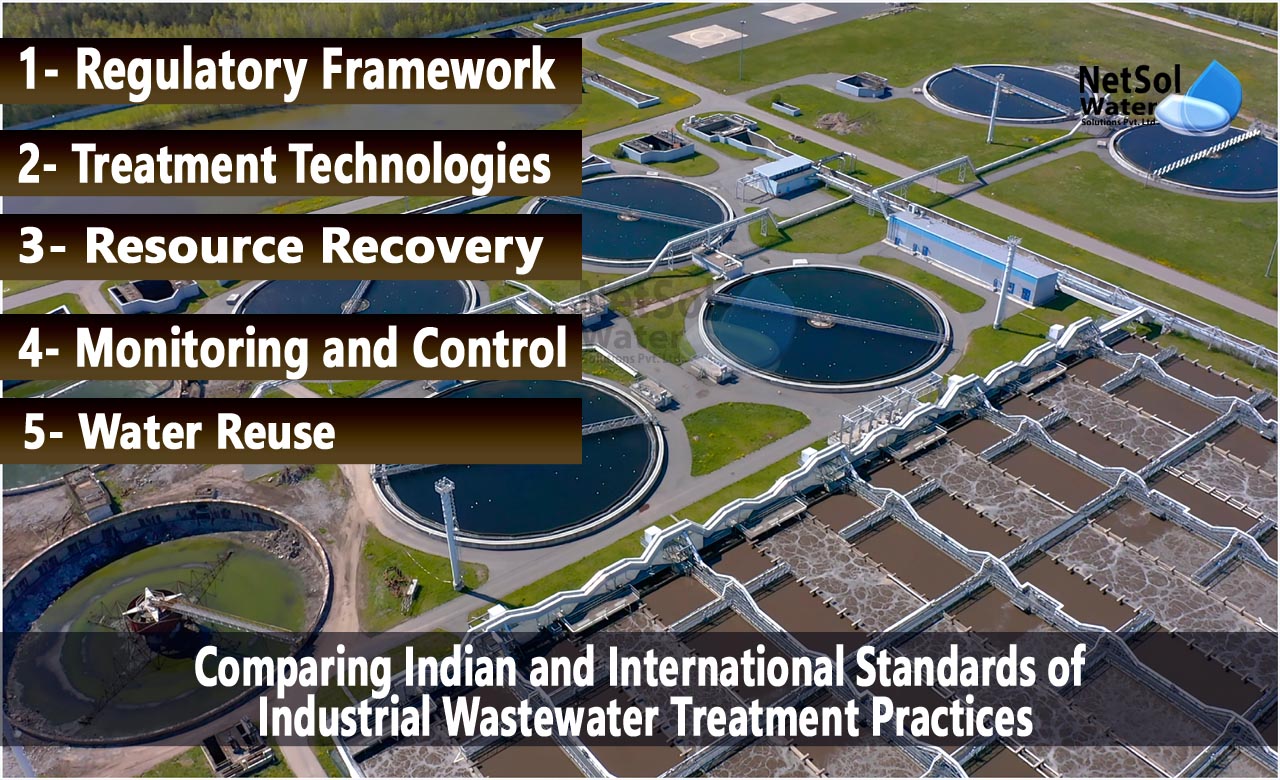Industrial Wastewater Treatment Practices: Indian Vs International
The management of wastewater is a global issue, and appropriate wastewater treatment techniques are gaining importance among companies worldwide. Industrial wastewater treatment has undergone substantial change in India, but in order to guarantee regulatory compliance and environmental sustainability, these practises must be compared to international standards and best practises. We will examine the parallels, discrepancies, and opportunities for development between Indian industrial wastewater treatment methods and global standards in this blog.
Regulatory Framework
The Water (Prevention and Control of Pollution) Act and the Environmental Impact Assessment (EIA) procedure are two of the many environmental rules that control industrial wastewater treatment in India. The protection of ecosystems and water bodies is the goal of these laws. In terms of effluent quality and monitoring, some international rules, like the Clean Water Act of the United States and the Water Framework Directive of the European Union, may be more strict.
Treatment Technologies
Conventional wastewater treatment systems, such primary and secondary treatment, are the mainstay of Indian enterprises. Although these techniques are efficient, in order to improve effluent quality and lessen environmental impact, sophisticated treatment processes such as membrane filtration, biological nutrient removal, and tertiary treatment are becoming more and more important in international best practises.
Resource Recovery
International practises are beginning to place more emphasis on resource recovery from wastewater, including the extraction of valuable materials and the production of energy. While Indian firms are starting to investigate these prospects, more can be done. While anaerobic digestion, a technology that turns organic matter into biogas, is widely used in other parts of the world, it has not yet gained much traction in India.
Observation and Information Analysis
International wastewater treatment practises are reliant on real-time monitoring, data analytics, and process control. These technologies contribute to improved effluent quality, energy savings, and process optimisation. Though there is room for improvement, Indian companies are gradually adopting these kinds of monitoring and control systems.
Water Reuse
Water reuse is a key component of worldwide wastewater treatment, because water scarcity is a global issue. To preserve water resources, many nations promote or require industrial water reuse. Water recycling is something that Indian enterprises are just beginning to investigate, but there is a lot of room to grow and bring these initiatives in line with global best practises.
Public Knowledge and Involvement of Stakeholders
The significance of stakeholder participation and public awareness in wastewater management is emphasised by international best practises. Although Indian businesses frequently interact with local communities and government agencies, taking a more proactive and open approach could foster relationships and confidence.
Environmental Impact Assessment (EIA)
Under India's EIA process, enterprises must evaluate how their operations—including wastewater management—affect the environment. International EIA standards can guarantee a comprehensive approach to environmental sustainability by offering insightful information about best practises for environmental impact assessments.
Accountability for the Environment
Environmentally conscious and sustainable practises are being adopted by industries worldwide, with a focus on minimising their ecological footprint. Even though Indian businesses have advanced, there is still opportunity to further incorporate sustainability into their business practises and corporate cultures.
Capacity Building
Building capacity and providing worker training are necessary for treating wastewater effectively. In order tocomply with international standards for wastewater management practises, Indian enterprises need make investments in talent development and training.
Investigating and Creating
It's essential to stay current with wastewater treatment advancements and research. The gap between current practises and international standards can be closed with the support of joint research and innovation projects involving Indian enterprises, academic institutions, and foreign specialists.
Conclusion:
The methods used in India to handle industrial wastewater have changed dramatically over time, and the nation has made admirable strides in environmental care. A deeper examination of global best practises and standards, however, identifies areas that still require development, including the employment of cutting-edge treatment technology, resource recovery, water reuse, and the adoption of new trends in monitoring and control.
Indian enterprises can improve their regulatory compliance, environmental performance, and contribution to the global push towards sustainable wastewater treatment by bringing themselves into line with international benchmarks. In addition to improving the environment, achieving this alignment will boost India's standing in the world economy.
Netsol Water is Greater Noida-based leading water & wastewater treatment plant manufacturer. We are industry's most demanding company based on client review and work quality. We are known as best commercial RO plant manufacturers, industrial RO plant manufacturer, sewage treatment plant manufacturer, Water Softener Plant Manufacturers and effluent treatment plant manufacturers. Apart from this 24x7 customer support is our USP. Call on +91-9650608473, or write us at enquiry@netsolwater.com for any support, inquiry or product-purchase related query.



